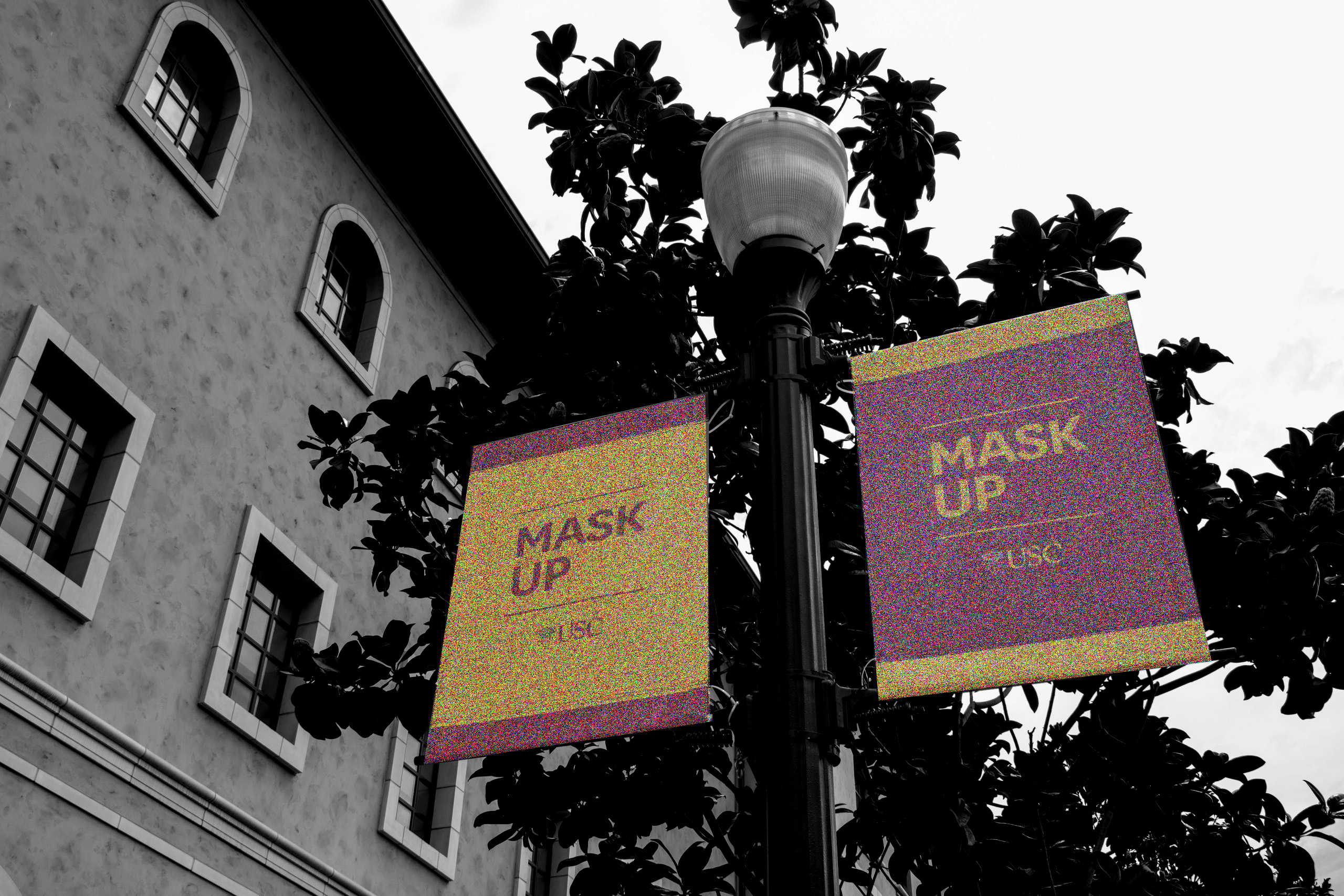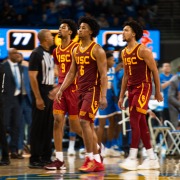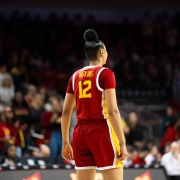Class of 2027 first without pandemic-era restrictions
The University lifted its coronavirus vaccine requirement this past April.
By FAITH SAN MARTIN
From weekly coronavirus testing to required medical masks, the classes of 2023 through 2026 went through the peak of the pandemic while tackling college academics.
But the class of 2027 will experience something completely different. Trojan Check, an app through which students performed mandatory daily symptom checks, will be foreign to them, and they will only be required to wear masks at the University upon entering the Engemann Student Health Center when having symptoms. Essentially, their college experience will most likely be one where the coronavirus pandemic seems to have never happened.
Nobert Otieno, an incoming freshman majoring in film and TV production, said the coronavirus pandemic threw a curveball at him in high school, altering the course of his four years thereby preventing him from continuing track and field and other extracurriculars that he was excited to join.
“I was a second semester freshman [when the pandemic started],” Otieno said. “I definitely would have been sticking with sports if the pandemic didn’t happen; I haven’t been able to get back [to track and field] since.”
Now, Otieno has high hopes for the extracurriculars he couldn’t take in high school and for the networking opportunities USC has to offer.
“I’m definitely planning on joining a lot of clubs and exploring all the options that I have within the school,” Otieno said. “I’m most excited for meeting a lot of new people in my degree program, especially working [with them].”
Tristan Wilcher, also a member of the class of 2027, will be an arts, technology and the business of innovation major at the Iovine and Young Academy. Right when he started his own high school club — the music makerspace club — the pandemic hit, derailing his plans.
“Some of the members met up and made a discord so we could still kinda connect, but it wasn’t the same as being in the same room,” Wilcher said. “[Being in-person] could have been great, but COVID kinda ruined it.”
With restrictions now eased, Wilcher is looking for a second chance at finding a community through his program.
“I am most excited for just connecting with the people in my program … everything is [hands-on],” Wilcher said. “You’re right there learning with the technology, you’re designing things and learning along the way.”
Though members of the class of 2027 said they are excited to see a school year without the coronavirus, some students in previous classes have reminisced on what their freshman year could have been.
Chanel Williams, a rising junior majoring in non-governmental organizations and social change, recalls how the coronavirus pandemic made her senior year of high school and first year of college take a turn for the worst.
Williams said she wasn’t able to attend her high school’s Grad Night and experienced a lack of engagement in the classroom throughout the pandemic, when remote learning became prevalent. Williams’ second semester at USC started asynchronously as a tidal wave of new coronavirus cases spread all across Los Angeles County in early 2022. This brought academic difficulties for Williams, especially in her statistics course.
“It just wasn’t the same,” Williams said. “It was hard to interact with other classmates and professors because of Zoom. It was inconvenient, if anything, because everyone was expecting to go back and we didn’t.”
The e-learning model was supposed to be temporary, but many classes did not resume in-person instruction, even after coronavirus cases started to drop. One of them was Williams’s statistics course.
Although college is primarily academics-focused, participating in extracurriculars while following coronavirus protocols can be challenging. Williams said that a lot of her team members caught coronavirus, so they couldn’t practice or meet up with each other as often.
“We have our retreats early in the spring semester and a lot of people couldn’t go to our retreats unless they were from L.A.,” she said. “Beforehand, a lot of people caught COVID and the retreat wasn’t what we were thinking it was going to be. All of our clubs and extracurriculars were all online.”
Although some of these changes were difficult to adapt to, they were necessary, said Tara Qureshi, a physician assistant at USC Student Health.
Qureshi said each step in the University’s coronavirus response was incredibly important.
“We adapted: We started the telemedicine to accommodate our students, we set up a tent for respiratory infections so that none of the staff or students could be infected. We abided by the L.A. Department of Public Health and followed the CDC guidelines,” Qureshi said.
As for students, weekly testing, Qureshi believed, was the most effective step of all.
“When you were tested I felt that it was more concrete and we knew exactly if the patient was positive or negative,” she said. “Trojan Check was good, but I am not sure if students were answering them correctly.”
Starting Fall 2023, most of what USC students thought as “normal” will no longer exist. The respiratory tents have gone down, the University will no longer require masks unless someone is experiencing coronavirus symptoms and only 20% of USC Health appointments will be through telemedicine.
“Our goal is to go back to pre-COVID era and see most of our students in-person,” Qureshi said.
When it comes to the classes before and today’s incoming students, there is a lot to consider different.
“[There was] very less in-person attendance as opposed to a normal freshman year … I think that [the class of 2027] will not even understand what it was like for the kids that went through the pandemic,” Qureshi said.
The transition to college will always be a huge milestone, but for the class of 2027, this experience is most special because it proves that the world can return to old practices, and that the University can achieve a sense of ‘normal’ from before the pandemic.
“There is a possibility to have a normal life,” Qureshi said.









